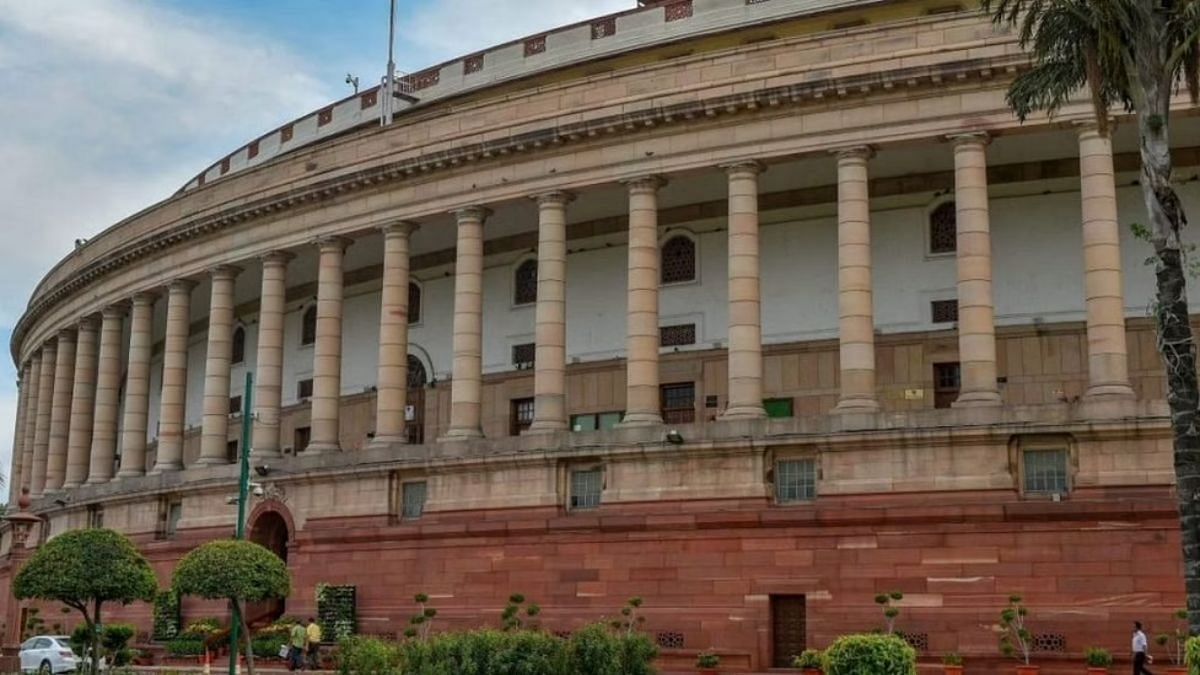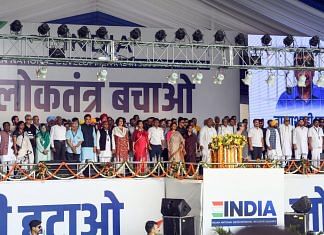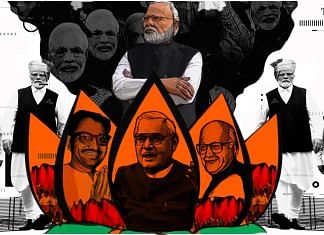Thank you dear subscribers, we are overwhelmed with your response.
Your Turn is a unique section from ThePrint featuring points of view from its subscribers. If you are a subscriber, have a point of view, please send it to us. If not, do subscribe here: https://theprint.in/subscribe/
India’s representative democracy has a problem – it isn’t representative enough. The day after election day, members of parliament or legislative assemblies become part of an opaque system of law- and policy-making rooted in New Delhi which is practically inaccessible to the rest of the country. Parliamentary democracy in India finds itself confronting the challenges of the 21st century with almost no access to its most powerful asset – the experience and expertise of its citizens.
Our existing processes are failing us so badly that our only option to highlight issues seems to be massive public protests like the India Against Corruption movement for the Lokpal bill or the farmer protests more recently. Though protests are a legitimate tool for citizens to advocate for a cause, a modern democracy must also create the processes for other forms of more nuanced engagement with its citizens.
Citizens must have access to more ways of influencing what happens in parliament. Often, this is mistaken as a call to move towards direct democracy which leads to the uncreative and outdated (but legitimate) retort that India is not Switzerland and that we can’t have referendums on everything. Policymaking is more than the binaries of a single vote. Hearing from those with real expertise and lived experience adds value and lends credibility both to the process as well as to the final output. This is not a particularly novel idea. In fact, the Indian parliament already has a law, albeit poorly enforced, that mandates every bill to be opened for public comment before it is passed in parliament. At the very least, as citizens we should push for the “Pre-legislative Consultation Policy (PLCP)” to be implemented both in letter and spirit and designed in a way that goes beyond mere lip service. But we can do more. We live in a hyper-connected world which enables us to engage with large numbers of diverse people. Experiments in citizen engagement at various stages in the policymaking cycle are becoming more common around the world. Of course, it goes without saying that any process we create must be designed to be equitable and allow for diversity (including, critically, geographic diversity to make parliament more accessible to parts of the country outside of New Delhi).
There are many tools like pol.is and allourideas.org which enable large-scale deliberation about public problems, often with hybrid (online/offline) processes designed around them to facilitate public participation. In Taiwan, the government uses an open consultation process called “vTaiwan” to create policies, for example, like the one to regulate Uber and ensure fair competition with local taxi services. Other tools like YourPriorities, enable governments to ask individuals and organizations within our communities to share and debate their ideas to tackle local public problems. But it is not enough for these processes to be optimized for the public. In order to be successful, it must work equally well for the legislative staff and civil servants who are tasked with receiving this input and, most importantly, implementing them.
These participatory policymaking methods have their own challenges and will have to be specially designed for the Indian context. But on many issues where MPs and MLAs want to vote a certain way, either in consultation with their constituents or based on their own expertise, the challenge doesn’t come from the absence of a process but rather in the form a law that is begging to be reformed called the “anti-defection law”. Enacted in the 1980s through a constitutional amendment to curtail the “sin of political defections” (referred to as “horse-trading” colloquially), it forces MPs to vote in parliament as per the directions of their party. This makes an assumption that legislators are fundamentally corrupt and that a vote against the party line is a manifestation of that corruption (or worse, disloyalty) and that therefore, they cannot be trusted with voting in good conscience. This fundamental lack of trust in politicians is perhaps justified given the Indian electorate’s past experiences with the “aaya ram gaya ram” style of politics. But perhaps what is necessary is more timely enforcement of punishment when real acts of malfeasance are discovered rather than this mechanism that prevents a duly elected MP or MLA from using their judgement on specific issues.
The new parliament building in Central Vista can reportedly seat over 1200 MPs. It is vital that we reform the basic policies of how the parliament functions, so that these MPs are empowered to be a voice of change for their constituents. If we don’t, those 1200 MPs might as well be replaced by mindless, button-pushing machines and we the people will be poorer for it.
These pieces are being published as they have been received – they have not been edited/fact-checked by ThePrint.
Also read: SubscriberWrites: Multi-polarity might be the future, but there are hurdles in place












COMMENTS